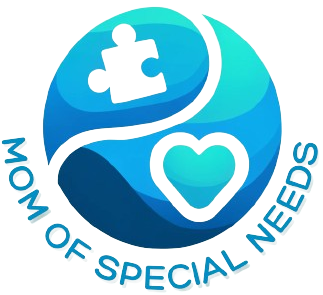
Raising a child with special needs is a journey that reshapes a family in profound ways. It not only challenges the parents but also significantly affects the siblings. This blog explores the dynamic of sibling relationships in families with a special needs child and offers insights into how parents can nurture positive interactions within the family.
Unique Challenges and Opportunities
Siblings of children with special needs encounter a unique set of challenges and opportunities from an early age. They often experience a wide range of emotions, from confusion and concern to love and protectiveness. It’s not uncommon for these siblings to take on more responsibilities, sometimes maturing quicker than their peers.
On one hand, these experiences can foster empathy, resilience, and a strong sense of responsibility. Siblings may develop a deep bond with their special needs brother or sister and a unique understanding of diversity and inclusion. On the other hand, they might also feel overlooked at times when the needs of their sibling take precedence.
Emotional Rollercoaster
One of the most significant impacts on siblings is the emotional complexity involved. They may feel pride in their sibling’s accomplishments but also struggle with feelings of jealousy or resentment due to the extra attention their sibling receives. Parents can help by fostering open discussions about emotions and ensuring each child’s feelings are heard.
To further support emotional resilience, resources like Learning to Listen: Effective Communication with Special Needs Children can provide parents with strategies to engage their children in meaningful conversations. This not only addresses their concerns but also strengthens sibling bonds through improved understanding.
Role of Parents in Balancing Needs
Parents play a critical role in balancing the needs of all their children. This balance is not about dividing attention equally but rather about meeting the needs of each child as required. Communication is key. Parents should talk openly about their special needs child’s condition with their other children, explaining it in a way that is appropriate for their age.
Finding ways to involve siblings in the care and daily lives of their special needs brother or sister can also enhance their relationship. Engaging activities that promote shared learning and teamwork, as discussed in Crafting Connections: Social Skills Development for Special Needs Kids, are particularly helpful in building a sense of mutual support and cooperation.
Long-term Benefits and Bonds
Despite the challenges, the long-term benefits of growing up with a sibling who has special needs are significant. Siblings often grow up to be more inclusive and compassionate adults. They are typically very protective of their special needs sibling and committed to their well-being.
Moreover, these siblings tend to develop strong problem-solving skills and an ability to handle unexpected situations with grace. These are valuable skills that benefit them in all areas of life, from personal relationships to professional environments.
Support for Siblings
Supporting siblings in families with special needs children is crucial. Many communities offer support groups and recreational programs specifically for these siblings. These programs provide them with a space to meet others in similar situations, which can be incredibly reassuring and validating.
Parents can use Circles of Support: Building Strong Networks for Special Needs Families as a guide to identifying and connecting with these resources. By cultivating a network of support, parents ensure their children have access to the help and community they need to thrive. Counseling or therapy can also be invaluable in helping siblings process their feelings, providing a space for them to express themselves freely and gain helpful strategies for managing complex emotions.
Conclusion
The relationships between siblings in families with special needs are multi-faceted and influential. While these relationships come with their own set of challenges, they also offer unique opportunities for growth and development. Parents can deepen these bonds by fostering open communication, nurturing social skills, and building a network of support for the entire family.
By incorporating insights from resources like Crafting Connections, Learning to Listen, and Circles of Support, families can navigate this journey with confidence. These tools empower parents to cultivate an environment where all their children—special needs or not—thrive together, equipped with the empathy and resilience to navigate life’s complexities.


